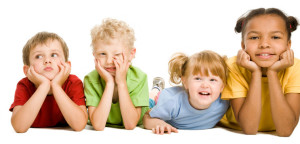- Here at Rio Grande Therapy Group, we offer a variety of services when it comes to pediatric speech-language therapy. We offer treatment in a variety of settings which include clinical setting and home-base setting to treat a variety of disorders. Below is a description of some of the disorders we treat:
![]()
Articulation
Articulation describes how a child produces sounds and puts sounds together to make words. Children who have articulation problems usually substitute or leave out speech sounds at times when they should be saying those sounds at a certain age. For example, saying ‘tat’ for ‘cat. Typically, unknown listeners should understand your child’s speech.
![]() Expressive /Receptive language skills
Expressive /Receptive language skills
Language includes a child’s understanding (receptive), and the words your child uses to communicate (expressive). Expressive language disorders are when someone is having trouble using content or the use of language to convey a message. Receptive language disorders are when someone is having difficulty understanding the content or the use of language. Receptive language disorders can include difficulty following directions, understanding words, or understanding simple stories. Expressive language disorders can include reduced vocabulary (so child may describe an object but not know the name of it), putting sentences together with the wrong words or the wrong order, and difficulty telling you about their day at school.
![]() Fluency and Voice
Fluency and Voice
Fluency in speech world is the smoothness/flow of sounds, syllables, words and phrases that are joined together when speaking. Common examples of fluency problems include stuttering and cluttering. Voice disorders are when there is an abnormal voice quality, pitch, or loudness. Examples can include a hoarse, raspy voice, or always using a loud speaking voice.
![]() Using /Understanding gestures and facial expressions
Using /Understanding gestures and facial expressions
Gesture and facial expressions are forms of nonverbal communication which many children exclusively use if they don’t have many words. AAC, or Augmentative and Alternative Communication, can be used to facilitate nonverbal children as needed.
![]() Cognitive Skills
Cognitive Skills
Cognition skills relate to how a person learns and processes information. It’s the ability to think about new information, process and speak about it and apply it to other, previously acquired information. Children with cognitive defects may have trouble remembering newly learned information or have difficulty putting two pieces of information together.


